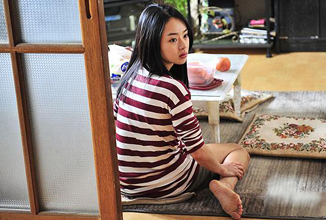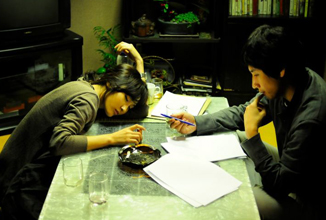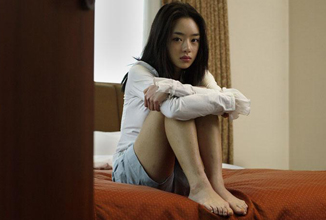"Where is the person now?... The person who killed my sister."
Synopsis:
Eun-mo (Seo Woo) returns to the town of Paju, following a number of years spent in India subsequent to the death of her sister Eun-soo (Shim Yi-young), and is re-acquainted with her brother-in-law, Joong-shik (Lee Sun-kyun), who is now part of a task force attempting to prevent the authorities from demolishing the homes of the local community, to make way for new developments.
As Eun-mo attempts to settle back into life in her hometown, questions regarding the cause of her sister’s death begin to rise to the surface and, suspecting that Joong-shik may have been somehow involved (and with a growing need to know the truth), she sets out to uncover the facts, once and for all. However, Eun-mo’s increasingly conflicted emotions serve to cloud matters still further, and ultimately threaten to cause even greater pain to both her and Joong-shik…
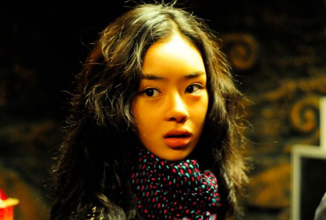 |
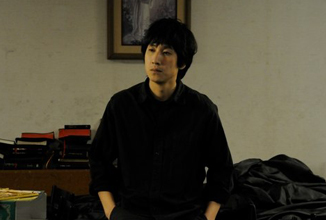 |
Review:
Paju serves to both tell Eun-mo's story and show how Joong-shik is (and has been) affected by each of the women in his life over the years:
When we are first introduced to Joong-shik, he is on the run from police (for an unstated, though obviously politically motivated, crime) and living with his, already married, lover and her young child, but even at this early stage it is clear that his desire to help those around him (whether from a sense of duty, a feeling of indebtedness, or as a result of guilt) repeatedly conflicts with his own needs, and though his resultant actions regularly cause as much pain to himself, and those around him, as they do help the relevant situation, it's pretty obvious that in order to change the way he lives his life (and the resultant choices he makes), he would actually have to significantly alter who he is as a person - and that's never going to happen.
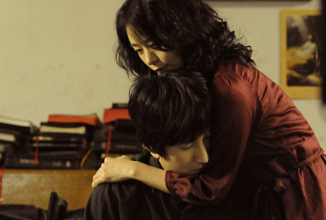 |
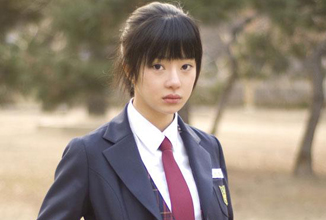 |
His vagueness regarding the circumstances surrounding the death of Eun-mo's sister, combined with his insistence she died in a car accident (when all the investigative evidence states that she was killed in a gas explosion) cannot fail to immediately set alarm bells ringing in Eun-mo's mind and, knowing that the full story is being deliberately withheld from her, she really can't be blamed for becoming suspicious and making assumptions based on the limited information available to her.
However, as she endeavors to ascertain what really happened to her sister, we are shown, in no uncertain terms, that, far from being bliss, ignorance brings with it pain that is as equally difficult to deal with as that caused by having full knowledge of a heartbreaking situation.
As Joong-shik and Eun-mo desperately struggle to keep themselves from psychologically falling apart, the surrounding community is also shown to be on the brink of collapse, and Paju uses this sub-plot to make some serious statements regarding the position of downtrodden people within the ever-onward marching regeneration and development of the country. The repeated reiteration of the idea that changes and decisions made "for the greater good" (both by those in authority and by gangsters masquerading as state-endorsed businessmen) are going to happen regardless of their affects on Paju's inhabitants, and the question of whether the pain of fighting an increasingly futile battle is actually greater than the pain of accepting a (largely unacceptable) situation is also shown to echo - admittedly to a lesser degree - in the decisions which both Joong-shik and Eun-mo make with regard to each other, and though neither are (fully) consciously aware that their actions are equally as self-motivated (if not even more so) as they are altruistic, it is nonetheless painfully evident from even the most cursory view.
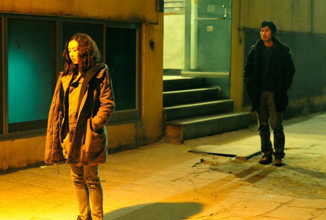 |
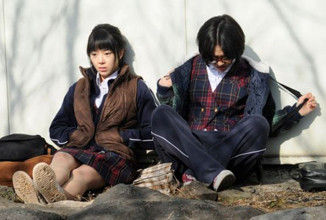 |
Paju takes place over four main time periods (eight, seven and three years in the past, and the present - the plot often jumping back and forth between each), and though this non-linear method of storytelling may initially cause some confusion (much like the fog which, both physically and mentally, surrounds Eun-mo at the beginning of the film) as the plot unfolds we begin to put the pieces of the puzzle together in a similar fashion to that of Eun-mo herself, and, like her, we feel the metaphorical fog gradually dissipate. However, how clear Eun-mo's subsequent view actually is, is repeatedly called into question, and ultimately becomes pivotal to the conclusion of the story.
A great deal more is implied than is outwardly stated in Paju, meaning that viewers are required to pay attention throughout, and, in fact, the culmination of events (and the resultant ramifications) is incredibly subtle - to the extent that its importance may initially be overlooked - but that in itself, combined with all the aforementioned comments, results in a film which is even more powerful on subsequent viewings.
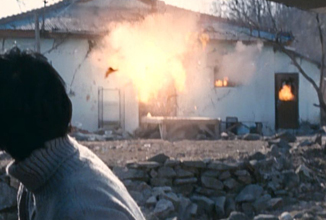 |
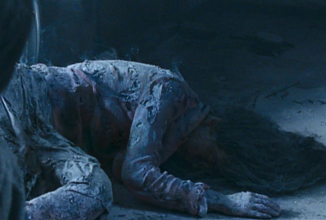 |
Direction:
Cinematically, Paju verges on being an arthouse production, but is, thankfully, devoid of any associated pretentions, and scenes reminiscent of many found in standard Korean melodramas are boosted greatly, and given a much larger feeling of importance, by brooding imagery (often without dialogue) accompanied by a beautifully sparse and melancholy score.
The colour schemes used throughout the film repeatedly contrast the drab, bleak surroundings of the town's community with the bright, vibrant technicolour vistas of new developments and further point to the increasing gulf between Paju's disadvantaged inhabitants and those in authority.
Cast:
The entire cast of Paju give superlative performances but it is the portrayals provided by Seo Woo (as Eun-mo) and Lee Sun-kyun (as Joong-shik) which are easily the most noteworthy. Both bring a vulnerability to their respective characters, further adding an extra depth to these already complex and emotionally conflicted individuals. Seo Woo is a relative newcomer to acting, but her performance in Paju cannot fail to result in eager anticipation being created for her future roles.
Summary:
A melancholy, yet darkly beautiful, film, Paju asks whether ignorance really is bliss, or if it simply brings a different set of heartaches to those brought by knowledge. A film which not only needs to be seen, but deserves to be seen more than once.
Cast (Actor...
Character):
Seo Woo... Eun-mo
Lee Sun-kyun... Joong-shik
Shim Yi-young... Eun-soo
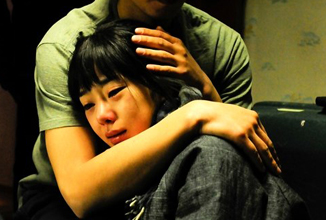 |
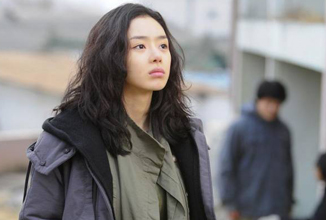 |
DVD
The DVD
edition reviewed here is the Korean (Region 3) Eos Entertainment First Pressing (Limited Edition) SE 2-Disc release, which comes in matt-finished deluxe packaging with embossed gloss segments. The film itself is
provided as an anamorphic transfer with an aspect ratio of 1.85:1 (even though the outside information states that it is 2.35:1) and there are no image artifacts (and no ghosting) present. Colours are vibrant, especially when contrasted with the deliberately drab greyness of the scenes involving Paju's disadvantaged community members.
The original Korean
language soundtrack is provided as a choice of Dolby Digital 5.1 and Dolby Digital 2.0 and is well balanced throughout.
Excellent subtitles are provided
throughout the main feature but English-speaking viewers should note that, as with many Korean DVD releases, there are no subtitles available on any of the extras.
DVD
Details:
• Director: Park Chan-ok
• Format: NTSC,
Anamorphic, Widescreen, Subtitled
• Language: Korean
•
Subtitles: English/Korean
•
Sound: Dolby Digital 5.1, Dolby Digital 2.0
• Region: Region 3
• Aspect Ratio:
1.85:1
• Number of discs: 2
• Classification: Category III (Korean Film Classification)
• Studio:
Eos Entertainment
DVD Extras:
- Making Film (featurette)
- Cast and Crew Interviews
- Music video
- Interview with director Park Chan-ok
- Poster Making (featurette)
- Stills Gallery
- Theatrical Trailer
|










